By identifying digital transformation as not only a goal but also a driving force for sustainable development, the City is gradually creating a Smart City, where all citizens and businesses can enjoy the most convenient and highest quality services.
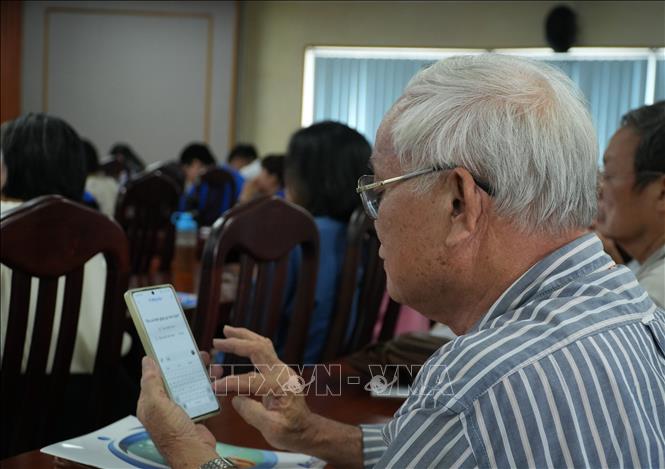
Many 'barriers'
Along with the quite comprehensive results achieved, Ho Chi Minh City still faces challenges of "bottlenecks" in terms of human resources for grassroots administration and digital capacity of citizens.
Mr. Nguyen Tan Phong, Deputy Director of the Department of Home Affairs of Ho Chi Minh City, pointed out the current situation of "both surplus and shortage" of professional staff: "Through preliminary determination, the City has about 1,065 redundant public positions; in which, mainly in non-moving positions such as clerical and office work, but there is a shortage of 965 positions in key professional fields such as: finance, construction, planning, land, health and information technology".
The lack of highly specialized human resources at the grassroots level is a "bottleneck" that makes it difficult for the government to meet the increasing needs of the people. In fact, in Ba Diem commune, one of four localities with a population exceeding 200,000 people in Ho Chi Minh City, since July 1, the work intensity of officials and civil servants has been very high. Each civil servant has to undertake from 5 to 7 tasks, often working overtime and extra hours on weekends.
Mr. Le Van Quang Vinh, Head of the Economic Department of Ba Diem Commune, shared: “Despite the great pressure of work, the staff and civil servants must try their best to complete their tasks. However, if this situation continues, some people will not be able to “stay” and will have to leave. Not to mention, civil servants in charge of land and planning, if they are constantly overloaded with work, will find it difficult to avoid mistakes or slow progress.”
Vice Chairwoman of the People's Committee of Ba Diem Commune, Tran Thuy Huong, acknowledged that up to now, the commune has had nearly 10 cases of resignation due to work pressure, making the commune's already small civil servant force even more seriously lacking.
“Currently, each functional department in the commune only has one head and one deputy head, so it is difficult to “load” the huge workload of the “super department”. If we can “share the burden” among the deputy heads in charge of each specific professional area, I believe that the work pressure on the department leaders in managing and handling work will be reduced,” Ms. Tran Thuy Huong explained.
Along with the “barrier” of human resources in the public sector, the people’s reluctance to change their habit of submitting documents directly also makes the process of building a digital government in Ho Chi Minh City encounter many difficulties. A part of the people rarely use technology, leading to the conversion rate to submitting administrative procedures online not reaching the ideal level.
Ms. Nguyen Thi Thu Dung, Head of the Department of Culture and Society of Xuan Hoa Ward, shared that recently, the rate of online application receipt in the ward has reached over 85%. However, to reach 100% with online application is very difficult, because many people do not want to change their habit of submitting directly, and some people are afraid to learn about technology.
“The ward has actively promoted and mobilized, and deployed forces to the area to guide and support people in activating their identification accounts and performing administrative procedures online. However, the effectiveness is not high, because the ward still has a group of elderly people and small traders who are afraid of change and always keep the habit of coming to do procedures directly,” Ms. Nguyen Thi Thu Dung confided.
In addition, the gap between those with sufficient skills and knowledge to master technology and those who do not or rarely use technology (also known as the digital skills gap) is a significant challenge for Ho Chi Minh City in building a digital government. This leads to a significant "gap" between the government's ability to provide online public services and the people's ability to enjoy them.
According to public administration expert Nguyen Tuan Anh, digital government cannot be successful without digital citizens. If the government modernizes its governance process, citizens must have the capacity to master technology.
“This requires Ho Chi Minh City to take the lead in popularizing digital skills, from schools, vocational training facilities to community cultural centers,” Master Nguyen Tuan Anh suggested.
All for the satisfaction of the people
After more than 4 months of operating the two-tier local government model, digital transformation has helped Ho Chi Minh City significantly shorten the time to handle administrative procedures and increase transparency. People and businesses receive faster and more accurate services.
The determination of the City's leaders is demonstrated through investment in human resources, with more than 40,000 officials, civil servants and public employees trained in artificial intelligence (AI) and digital transformation. This is also the core factor that helps Ho Chi Minh City be confident in its strategy of building a modern, digital government, in which administrative reform goes hand in hand with technological breakthroughs.
Experts assess that “leading position and solid foundation are important “fulcrums” for Ho Chi Minh City to realize the goal of building digital government and smart city.
Master Nguyen Tuan Anh proposed: “The goal is to reduce at least one-third of the manual workload for grassroots officials. In parallel, there is centralized management and remote support. Along with that, a large database of population, land, and social security needs to be integrated and virtual assistants developed to serve people 24/7 to reduce the burden on the administrative apparatus.”
Meanwhile, Dr. Tran Quy, Director of the Vietnam Institute for Digital Economic Development, acknowledged that the current digital transformation picture of Ho Chi Minh City is very clearly defined. These are not just goals on paper, but have been concretized with scientific "paths and steps", with quantified time and especially based on the actual situation in each implementation stage. This includes the strong determination and commitment of the City's leaders in building a digital government.
Sharing the same view, Digital Transformation Strategy Expert Vu Tuan Anh also acknowledged that the core of success does not lie in the technical foundation but in the awareness of digital transformation in leadership. “The initiative and determination of the leadership team is the key factor for Ho Chi Minh City to successfully achieve breakthrough goals: from strengthening administrative discipline, completing socio-economic tasks to promoting sustainable digital transformation in all fields,” said Mr. Vu Tuan Anh.
Emphasizing the urgency of applying digital technology to the governance and operation of two-level local governments, taking the efficiency of serving people and businesses as the highest goal, Chairman of the Ho Chi Minh City People's Committee Nguyen Van Duoc emphasized the strong application of digital technology to manage and operate flexibly and intelligently, promptly handle arising problems, review and prepare a medium-term plan to promote the City's key points in the period 2026 - 2030, including digital government.
Putting the interests of the people as the highest goal, the Chairman of the Ho Chi Minh City People's Committee requested that policy-making agencies must ensure that all digital transformation efforts are aimed at improving the quality of life, solving practical problems of the people, thereby creating a favorable environment for people to voluntarily participate and benefit from online public services.
The campaign to popularize digital skills from the "digital literacy" model is also considered the fastest and most effective solution in making technology friendly and providing practical training for people to easily access and use online public services. In addition, experts also suggested maintaining fixed support points at "base cells" (commune-level People's Committees) on weekends. This is where officials and civil servants take turns supporting people in conducting transactions, activating digital accounts, creating habits and trust in the public service environment in cyberspace. The reality of operating the two-level model shows that Ho Chi Minh City has successfully turned digital technology into a core "pillar", creating a streamlined, efficient, effective and efficient digital government apparatus. Although there are still challenges, with the position, determination and strong commitment of the leaders, the City. Ho Chi Minh City is gradually realizing its goal of becoming a smart super city through "breakthroughs" in building digital government.
Source: https://baotintuc.vn/kinh-te/kien-tao-do-thi-thong-minh-tu-dot-pha-chinh-quyen-so-bai-cuoi-huong-den-chinh-quyen-hieu-nang-hieu-qua-20251107075405808.htm






![[Photo] Da Nang: Hundreds of people join hands to clean up a vital tourist route after storm No. 13](https://vphoto.vietnam.vn/thumb/1200x675/vietnam/resource/IMAGE/2025/11/07/1762491638903_image-3-1353-jpg.webp)


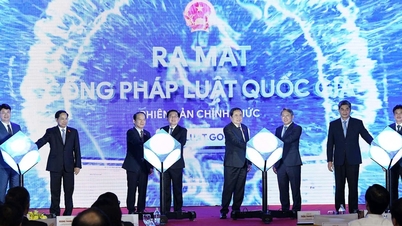

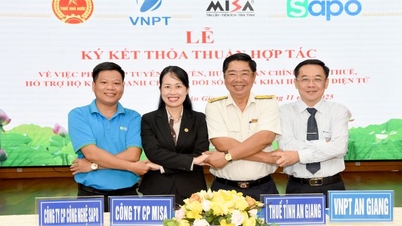



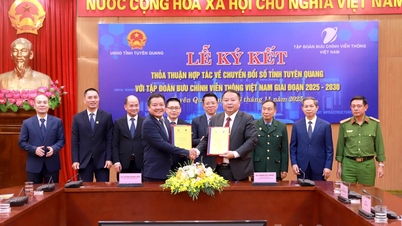

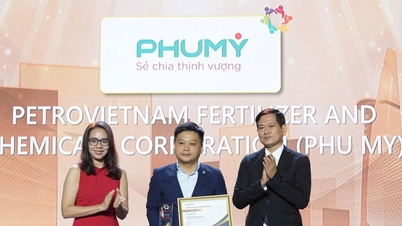














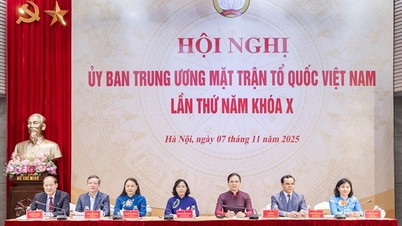
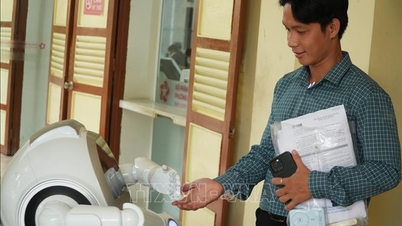























































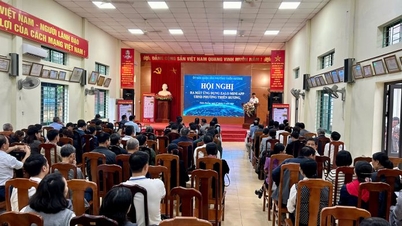






















Comment (0)